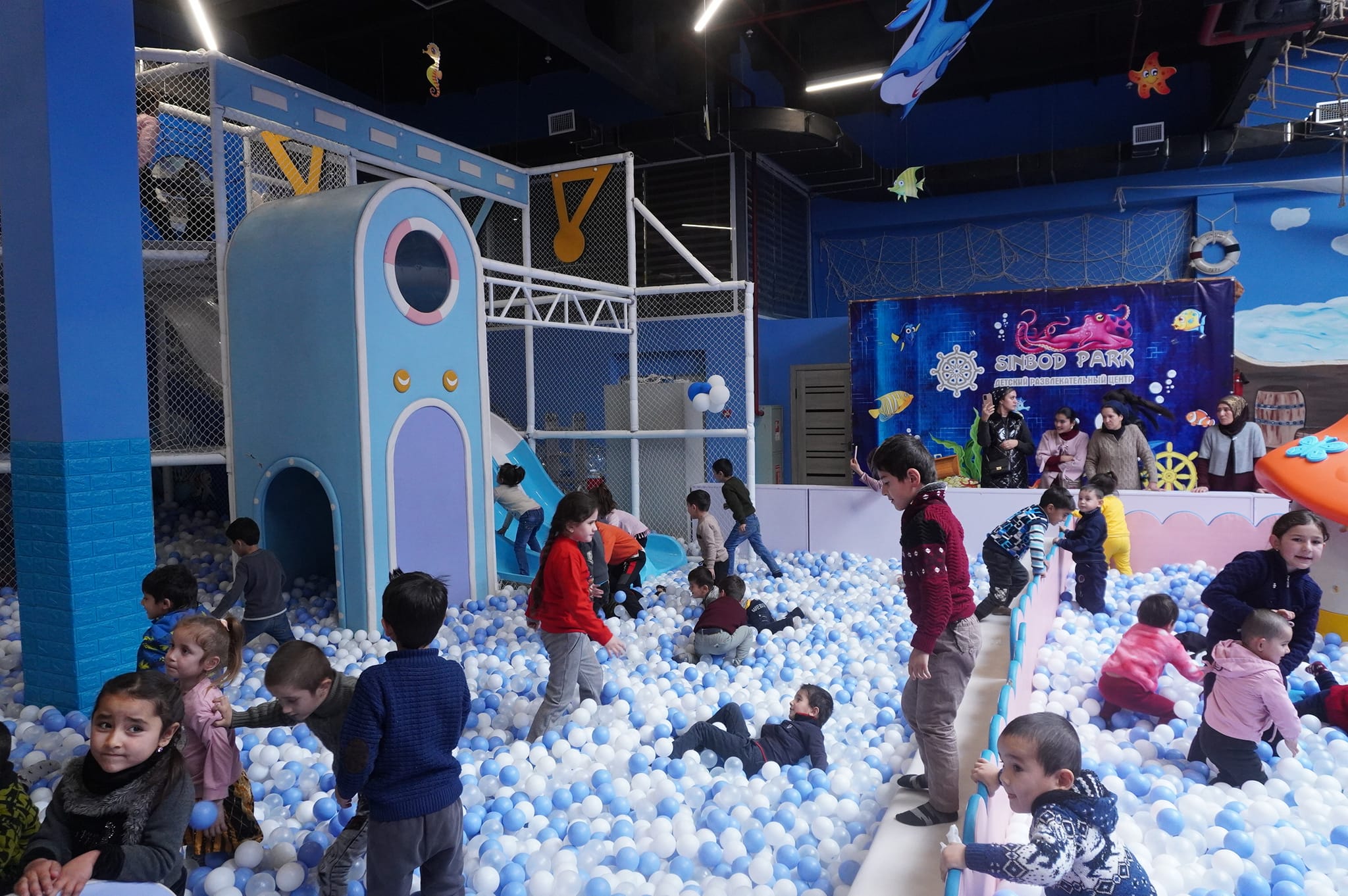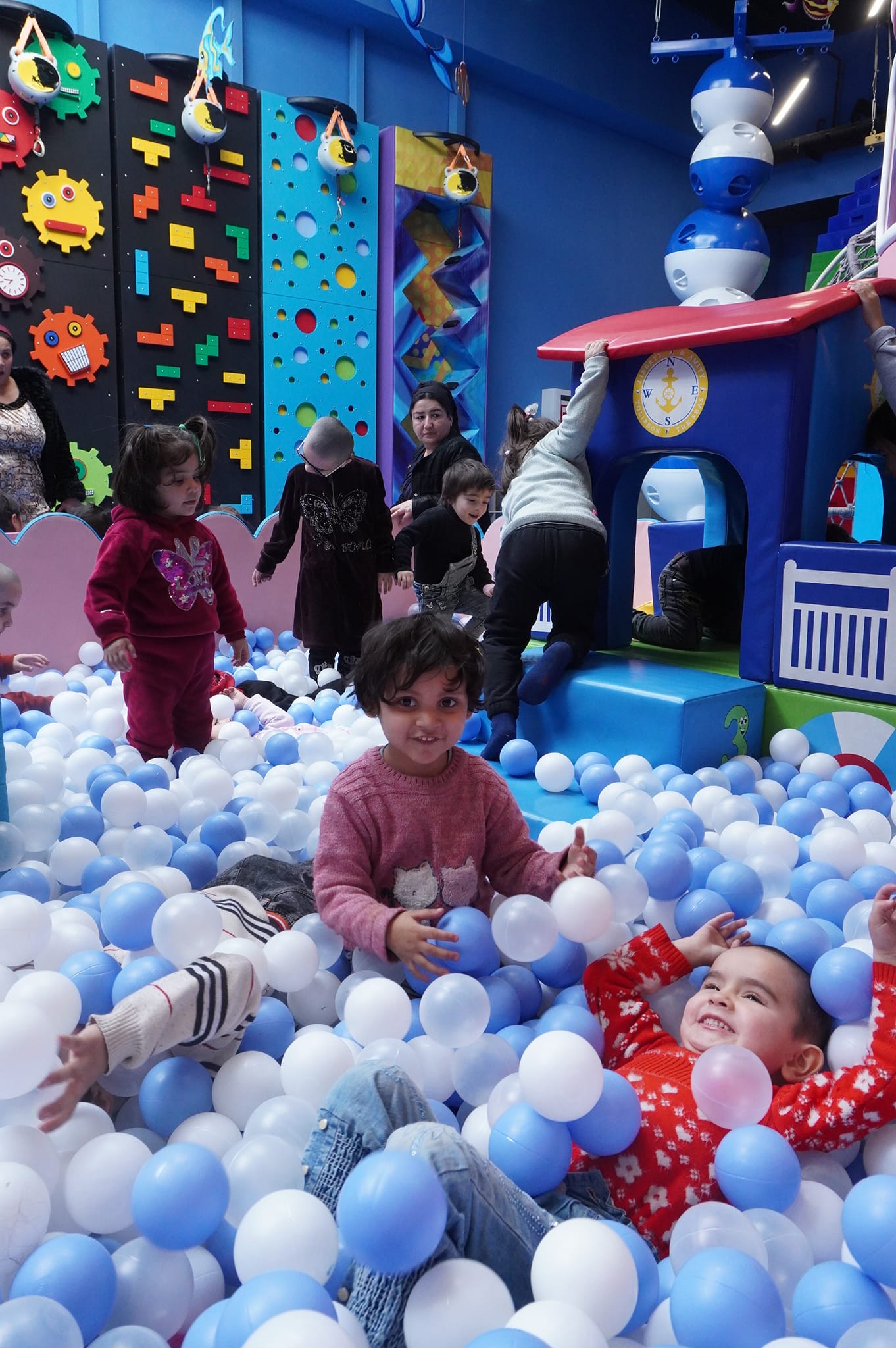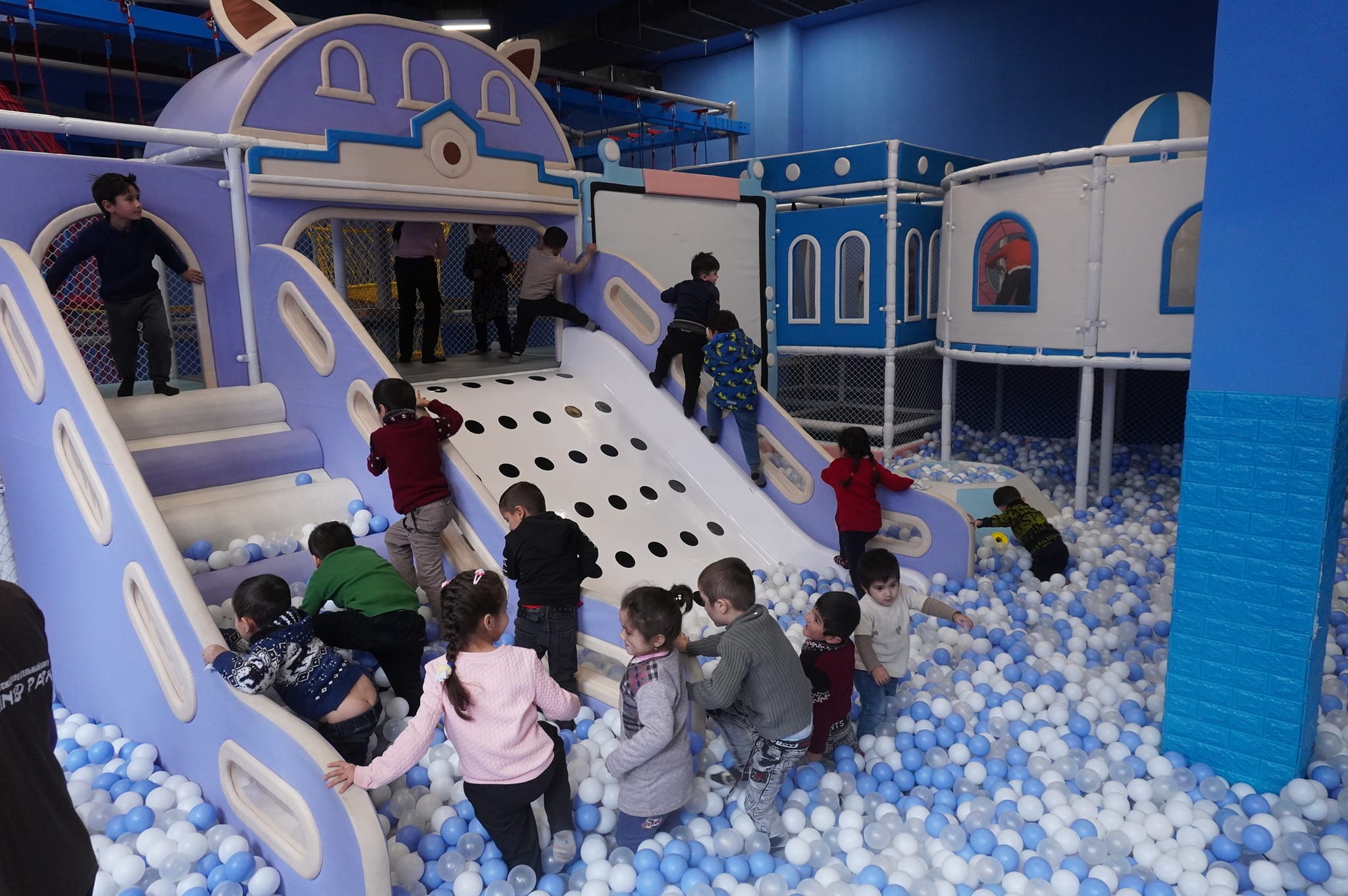Please contact us!
En
Why there has more and more family entertainment center opened for these year?

We’ve all been there. You come home at the end of a long day feeling exhausted. All you want to do is collapse on the couch and relax. And then, just as you sit down and take off your shoes, you hear: “Mommy! Daddy! Will you come play with me? Pretty please?!”
In that moment, playing with your child seems like a chore. But think of all the long term benefits—mentally, physically, and socially—for your child when she plays and especially, when she plays with you. We’re betting once you read further, you’ll think twice about saying “no” the next time she asks.
Benefits of Parent-Child Play
All children benefit from unstructured playtime with other children, including their siblings, and even playing by themselves. But there are special benefits that come from playing with a parent or other loving adults.
1. Play helps children develop all kinds of skills.
Playing with your child is one way to help him or her develop social skills and self-control. Children’s minds are like little sponges. They soak up everything around them. As they interact with parents and others, they learn how people behave in social settings. They also learn what’s acceptable by taking their cues from you.
In addition, research has linked parent-child pretend and physical play to the development of specific skills including:
Creativity,
Working memory,
Gross motor skills,
Cognitive flexibility,
Regulation of emotions, and
Peer group leadership skills.
Moreover, while kids develop many of the above skills playing with their siblings, parents offer a child more mature and varied forms of play. Because adults know more about the world, playing with the adults in their lives widens children’s imaginations in ways that playing with other children, even older siblings, does not.
For example, child development studies show infants and preschoolers often use behaviors that require a partner when playing with parents, but are less likely to do so when playing with a sibling. This makes sense. Your child craves interaction with you. Playing with other children is fun, but nothing compares to the joy and satisfaction of getting one’s parent to enter your special world of make-believe. It’s the stuff of memories!

2. Play helps build strong relationships.
Playing together is one of the most effective tools for building strong relationships with your child too. Play adds joy, vitality, and resilience to relationships. It can heal resentments, disagreements, and hurt. Through play, children learn to trust others and feel safe.
By making a conscious effort to incorporate humor and play into your daily interactions with your children, you can improve the quality of your relationships and connect on a deeper level. Play and laughter perform an essential role in building strong, healthy parent-child relationships by bringing you closer together, creating a positive bond, and resolving conflict.
3. Play is good for mom and dad’s health too.
It’s important to play with your child for your child’s sake. But, as an added bonus, you receive benefits from playing with your child too. The hormone oxytocin, which plays a role in parent-infant bonding, is released whenever mothers and fathers engage in affectionate play with their children of any age.
So, the next time you feel too exhausted to play with your child, you might try reframing the situation. Think of it as a relaxing massage for your mind that you don’t have to pay for!
How to Play with Your Child.
If you’re not sure how to play with your child, don’t worry! Lots of parents feel a bit awkward or silly, at first, playing pretend or engaging in childlike physical behavior. All you really need to do to be a good playmate for your child, though, is actively observe, listen to her stories, support her chosen mode of play, and engage in conversation.
Be sure to provide mutual interaction without continually intervening or controlling the conversation. Allow your child to explore his environment and sensations. Let him draw you in. Then be engaged and collaborate, which will teach your child to do the same in his future interactions.
Looking for some new ideas for playing with your child? take a look at these tips from the Women and Children’s Health Network:
Sorting toys: learning about numbers, shapes, and grouping objects.
Puzzles: learning about shapes, sizes, numbers.
Pretend play and dress up: social and emotional development.
Storytelling: learning about and developing language skills.
Throwing and catching: motor skills, physical development.
Enjoy this one-on-one time as you help your little one develop the skills that she will soon be ready to apply on her own.
And might we suggest...
If you’re looking for a great way to get out and play as a family while supporting EFC, Pinwheels Family Fun Day is coming up on April 15th! Each spring the Exchange Family Center partners with Wheels Fun Park bringing families, friends, and the community together for this amazing event. Bring the whole family and enjoy batting cages, mini golf, mazes, roller skating, fun gym access, and go kart rides!
Proceeds from Pinwheels go toward programs, like the Family Support Program that helped Ms. Smith and Ashley in the story below. These programs generate awareness about supporting families and teachers in helping teach children to be resilient.
How Does EFC help families?
Ms. Stefan agreed to participate in the Family Support Program because she had significant concerns about her 3-year-old daughter Ashley’s challenging behavior.
Ms. Stefan shared that Ashley often had difficulty controlling her emotions and acted aggressively toward her siblings and her mother. Ashley struggled to follow directions and had frequent, intense tantrums that included banging her head against the wall and scratching and biting herself.
During the initial assessment, Ms. Stefan was visibly upset and overwhelmed. She cried throughout the session and described feeling “hopeless” about how to support Ashley and manage her behavior.
Since starting Parent-Child Interaction Therapy (PCIT), Ms. Smith has learned a set of therapeutic play skills to help enhance her relationship with Ashley and improve Ashley’s overall behavior. Ms. Smith has implemented daily, special play time with Ashley and has met regularly with EFC’s Parenting Coach & Family Therapist to address questions and practice her skills.
Although she is still early in the program, Ms. Smith shared that by learning about the relationship between positive attention and behavior and making the skills part of her daily life, she has seen significant changes in Ashley’s demeanor. Ms. Smith described Ashley as “a different child” and said that she has significantly reduced the frequency and intensity of her challenging behaviors. Ms. Smith is looking forward to completing the program and said, “I never thought therapy could make such a big change!”
Ms. Stefan and Ashley learned firsthand how special parent-child play time can strengthen the bond and teach social and emotional skills. We love to support kids like Ashley and help families like the Smiths!

You can support local families too and experience the wonders of play with your own family. Pinwheels Family Fun Day is a win for families and the whole community! Won’t you join us? Everything you need to know, including a sample to purchase indoor play equipment, is available here.
Copyright Wenzhou Dream Garden Amusement Equipment Co.,Ltd | Sitemaps|Xml
|Please contact us!

